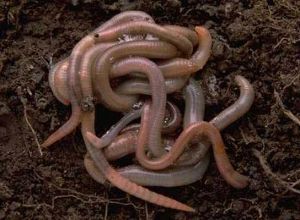
Do you have very little space? Do you want to compost? If so, a worm bin may be just the thing. In my last blog, I described how to make a worm bin.
Once you have created your indoor or deck-based compost bin, you need to know how to maintain it. Maintaining a worm bin is a little more challenging than the dump and run approach to a backyard compost bin. After all, everything is happening in a small space, and the bin may be inside your home. It’s not exactly a place where you want nasty odors.
Start your bin off slowly. Your worms will take some time to adjust to their new environment, and I know that after I have arrived in a new place, the last thing I want to do is dive into a big meal. Gauge how much the worms are eating by checking on the food scraps that you’ve placed in the bin. Rotate where you place the food scraps until the whole bin is covered. Larger families or those who eat a lot of produce may need two bins.
If your bin starts to smell, that is likely because you are putting too much produce into the bin. You need to alternate produce with regular infusions of leaves or shredded paper. Just like a backyard bin, you need a good mix of green and brown materials, and shredded paper is a brown, carbon-rich material. You also want to avoid drowning the worms in soggy produce all of the time. If you stir the bin, drain the bin and add paper repeatedly and the result is still soggy and smelly compost, then you likely need more than one worm bin.
I prefer to keep my worm bin on my deck. The reason is that we eat a lot of organic produce, and organic produce seems to have a lot of wildlife on it. This means that we tend to get flies. Now, adding air to the compost by stirring is supposed to break up fly eggs, but this has only worked to a degree. We place our bins in an insulated area of our deck where they are protected from the summer sun and the winter cold. These temperature changes also seem to reduce our wildlife problems.
Would you compost in a worm bin?

